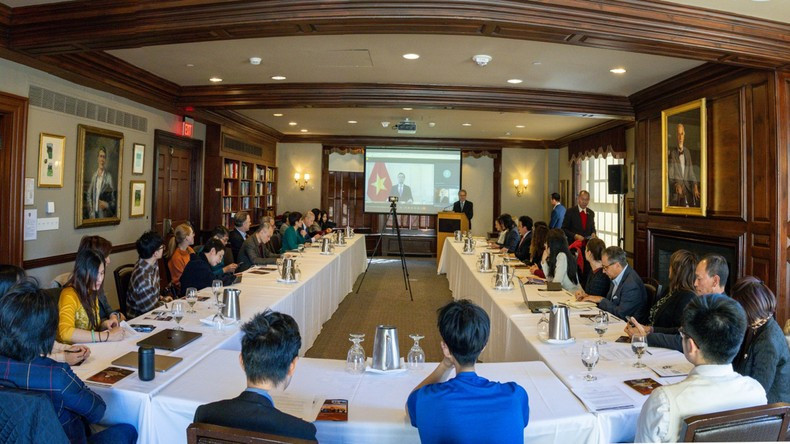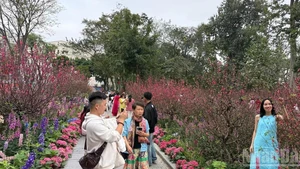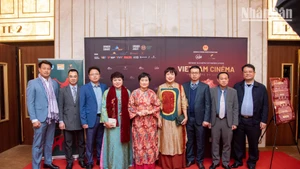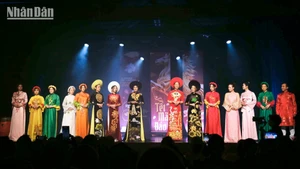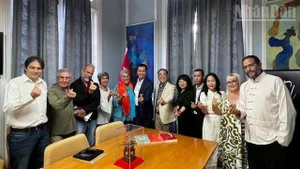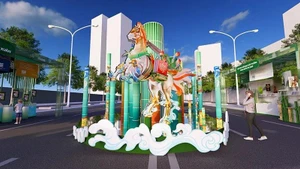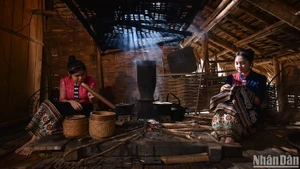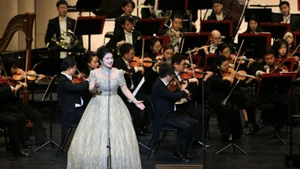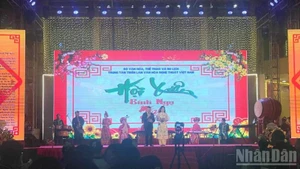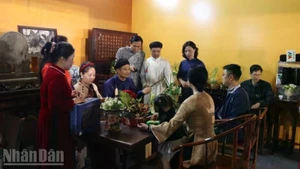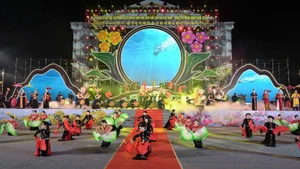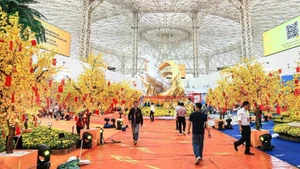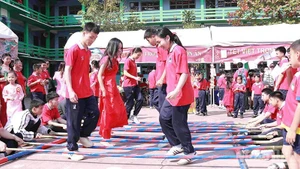The event was co-organised by the Vietnam Film Development Promotion Association (VFDA), the Boston Global Forum (BGF), the Permanent Mission of Vietnam to the United Nations, and Harvard University.
The roundtable, which was part of the series of activities celebrating the 30th anniversary of diplomatic relations between Vietnam and the US, aimed to strengthen the connection between the film industries of both countries, promote cooperation in film production, apply technology to cinema, and develop high-quality human resources.
It was attended by Ambassador Dang Hoang Giang, Head of Vietnam's Permanent Mission to the United Nations; Dr Ngo Phuong Lan, Chairwoman of the VFDA; former Massachusetts Governor Michael Dukakis, co-founder and co-chair of BGF; and international film experts, filmmakers, and investors.
Discussions at the event focused on the development of Vietnam's film industry in the context of international integration, building a film industry, and new trends in applying AI to film production.
Cinema is not only a creative industry but also a crucial bridge for enhancing mutual understanding and promoting cultural exchange between Vietnam and the US.
Ambassador Dang Hoang Giang, head of Vietnam's permanent mission to the United Nations
In his speech, Ambassador Dang Hoang Giang emphasised that cinema is not only a creative industry but also a crucial bridge for enhancing mutual understanding and promoting cultural exchange between Vietnam and the US, especially with the two countries celebrating their 30th anniversary of diplomatic relations in 2025.
He acknowledged the significant growth of Vietnam's film industry, which is increasingly recognised internationally, and stressed the need for technology application, particularly AI, to preserve and disseminate human values.
He praised the Friends of Vietnam-US Film Collaboration programme as a significant step in connecting the film industries of the two countries, laying the groundwork for deeper future cooperation.
Meanwhile, Dr Ng Phuong Lan noted that Vietnam's film industry is undergoing a critical transformation. Over the past five years, Vietnamese films have achieved box office revenues in the tens of millions of dollars, demonstrating the strong growth of the domestic market.
Notably, the new Law on Cinema, which took effect on January 1, 2023, has created more favourable conditions for international film crews to come to Vietnam, opening up more opportunities for collaboration with Hollywood producers and foreign markets.
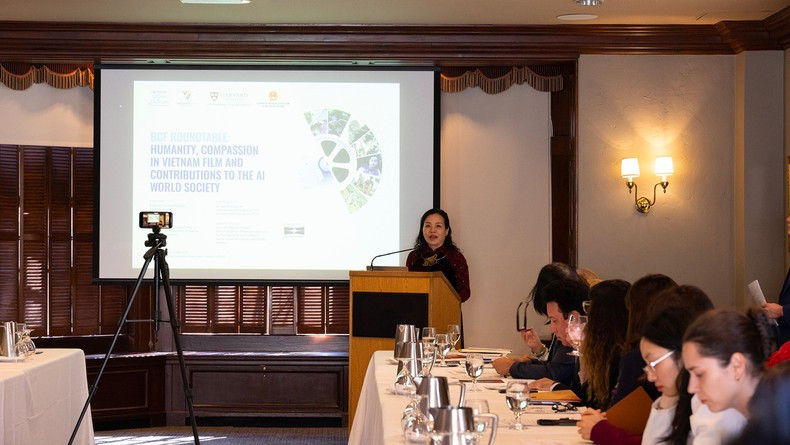 |
| Dr Ngo Phuong Lan, Chairwoman of the Vietnam Film Development Promotion Association (VFDA) speaks at the event |
However, Dr Lan emphasised that Vietnamese cinema cannot rely solely on its scenic filming locations; it needs a complete film ecosystem to attract international cooperation. Technology, preferential policies, human resource training, and distribution strategies are key factors in enhancing the status of Vietnamese cinema in the global context.
She pointed out that combining tradition with technological innovation, such as applying AI in film production, not only improves film quality but also increases competitiveness in the international market.
Looking ahead, Dr Lan affirmed that the VFDA is actively implementing the Production Attraction Index (PAI) to lure film crews to provinces and cities, while also striving to expand cooperation with film organisations, universities, and technology partners in the US to create more development opportunities for Vietnamese cinema.
During the discussion, participants explored solutions to attract international film crews, access advanced financial and technological resources, train high-quality personnel, and attract talent.
One of the key topics was the establishment of the AI World Society (AIWS) Film Park in Vietnam — a strategic project aimed at applying AI in cinema and connecting Vietnam with the global creative ecosystem.
This initiative is part of the Friends of Vietnam-US Film Collaboration programme, which supports filmmakers and investors from both countries in developing projects, connecting resources, and building a sustainable film ecosystem.
Speaking at the event, Former Governor Michael Dukakis highlighted the role of Vietnamese cinema in promoting cultural connections. Cooperation in the film sector is an important part of Vietnam-US relations, not only in film production but also in connecting technology, training human resources, and developing support policies.
Dukakis believes that the AIWS Film Park is a groundbreaking initiative that will help Vietnam rise as a creative film hub connecting with Boston, New York, Hollywood, and global markets.
The Harvard roundtable marked a significant step in the cooperation between the Vietnamese and US film industries, particularly as the two countries celebrate 30 years of diplomatic relations.
One of the key highlights of the seminar was the official launch of the 'Vietnam-US Film Development Friends' with the participation of top experts from Harvard, MIT, Boston Global Forum, along with many filmmakers and international investors.
According to Nguyen Anh Tuan, Co-Chairman and CEO of the Boston Global Forum, this initiative not only connects the film industries of both countries but also creates a platform to promote collaboration, use of advanced technologies like AI, and support young Vietnamese filmmakers in going global.
